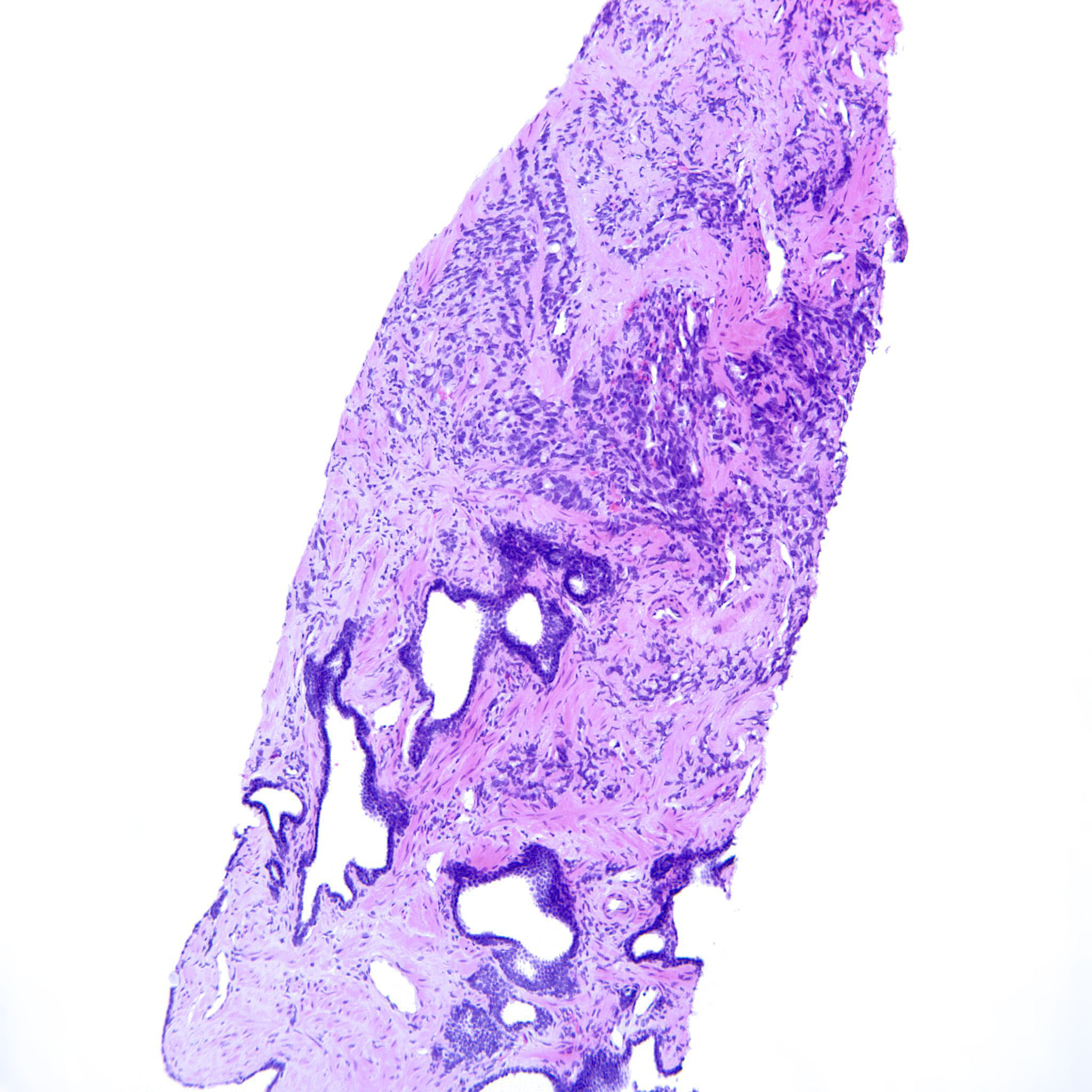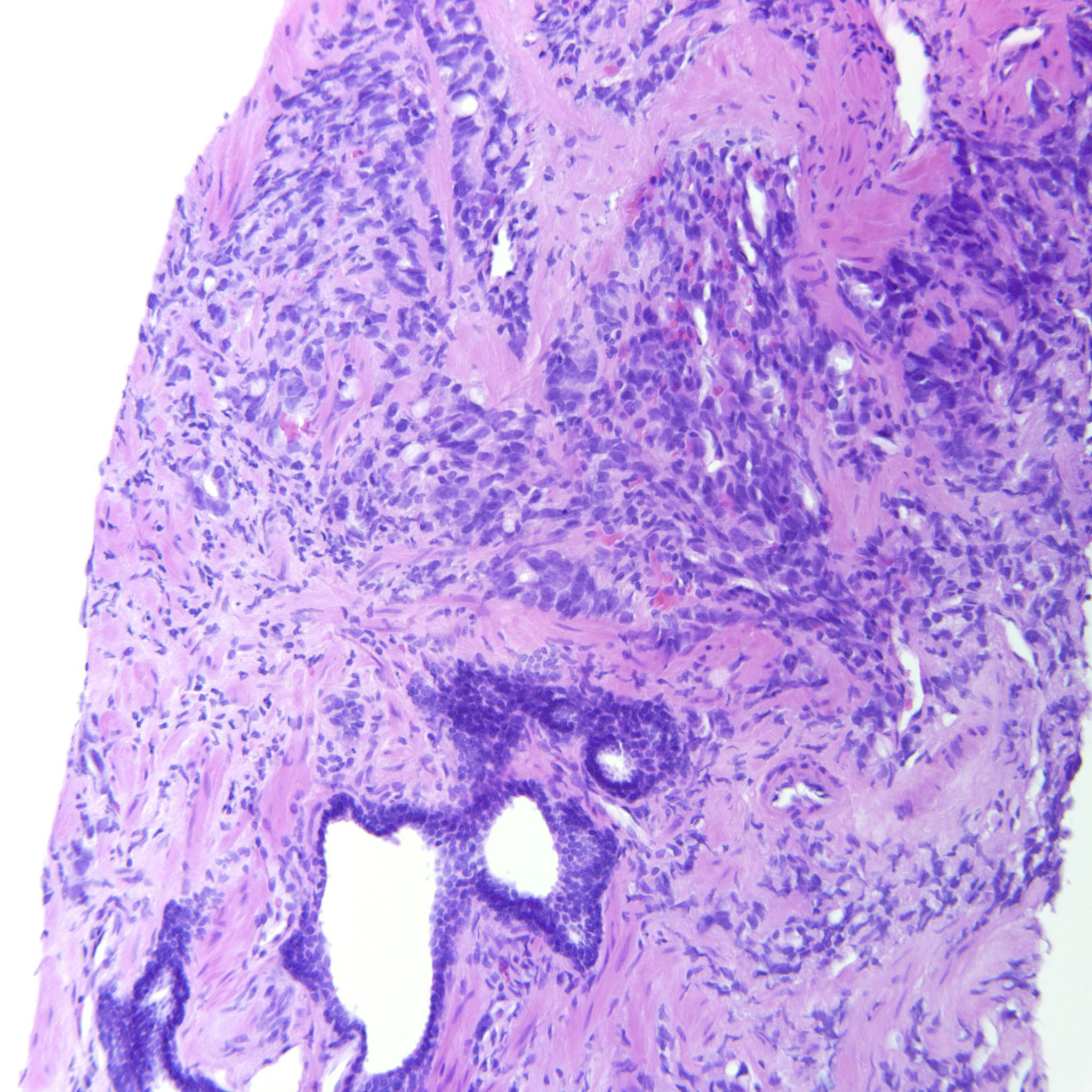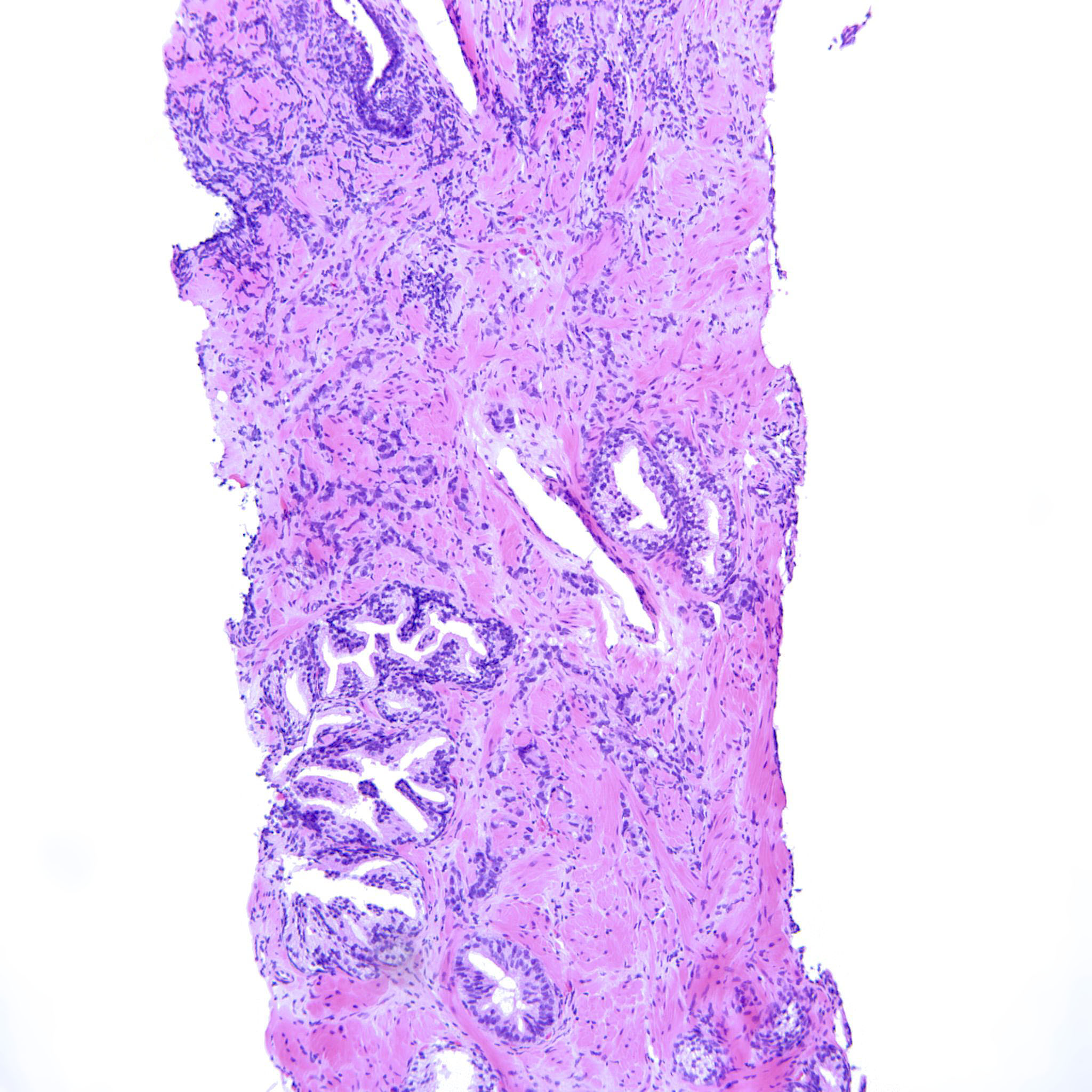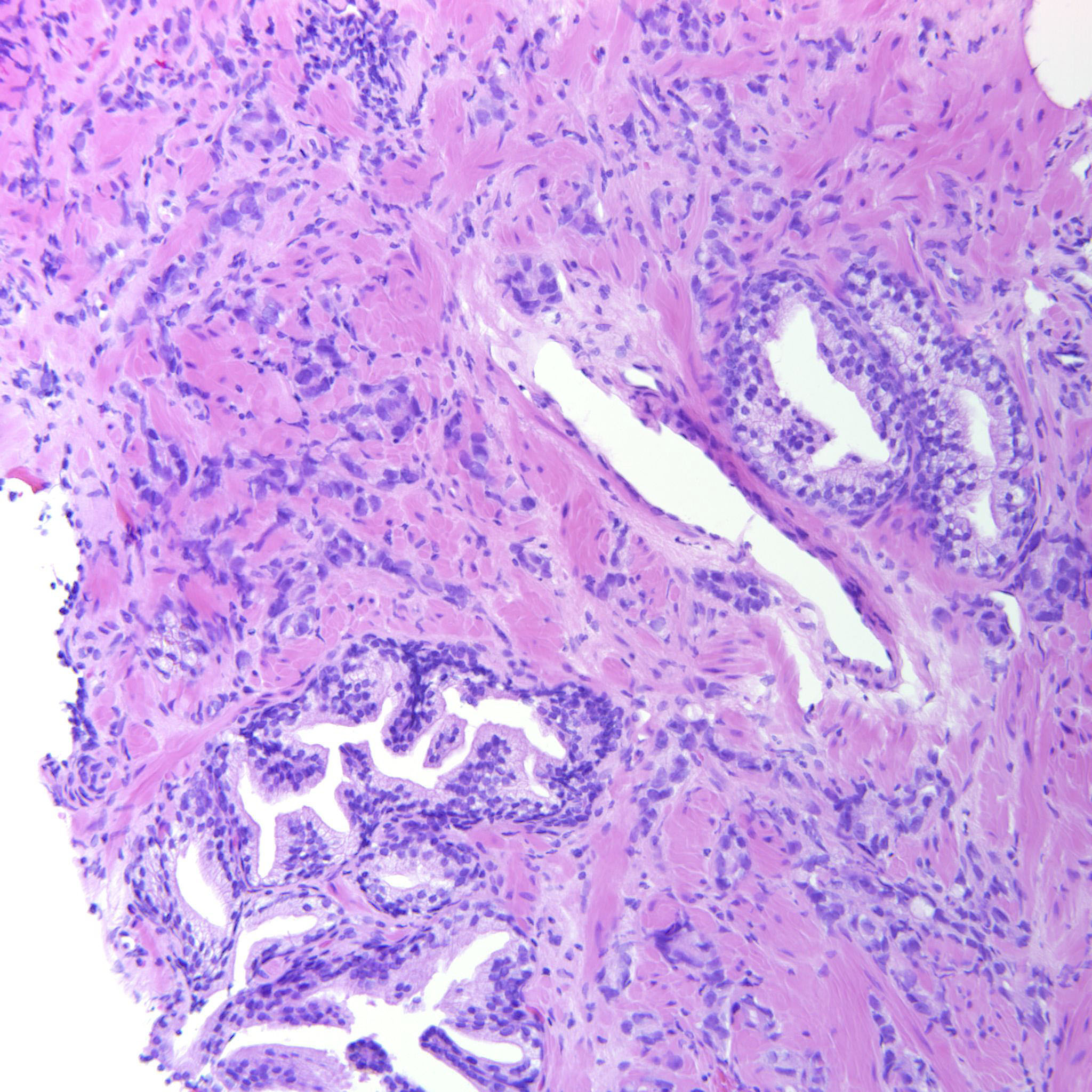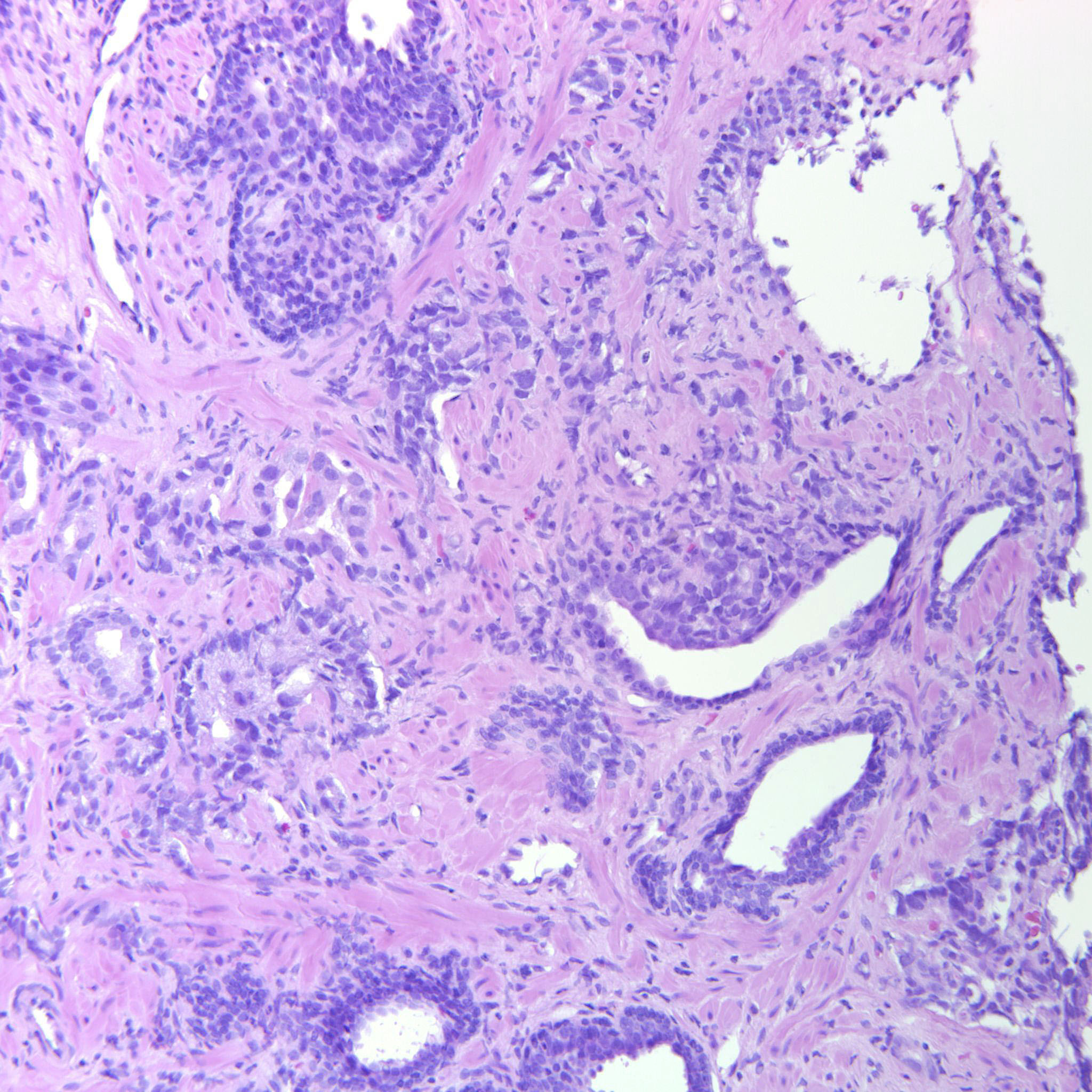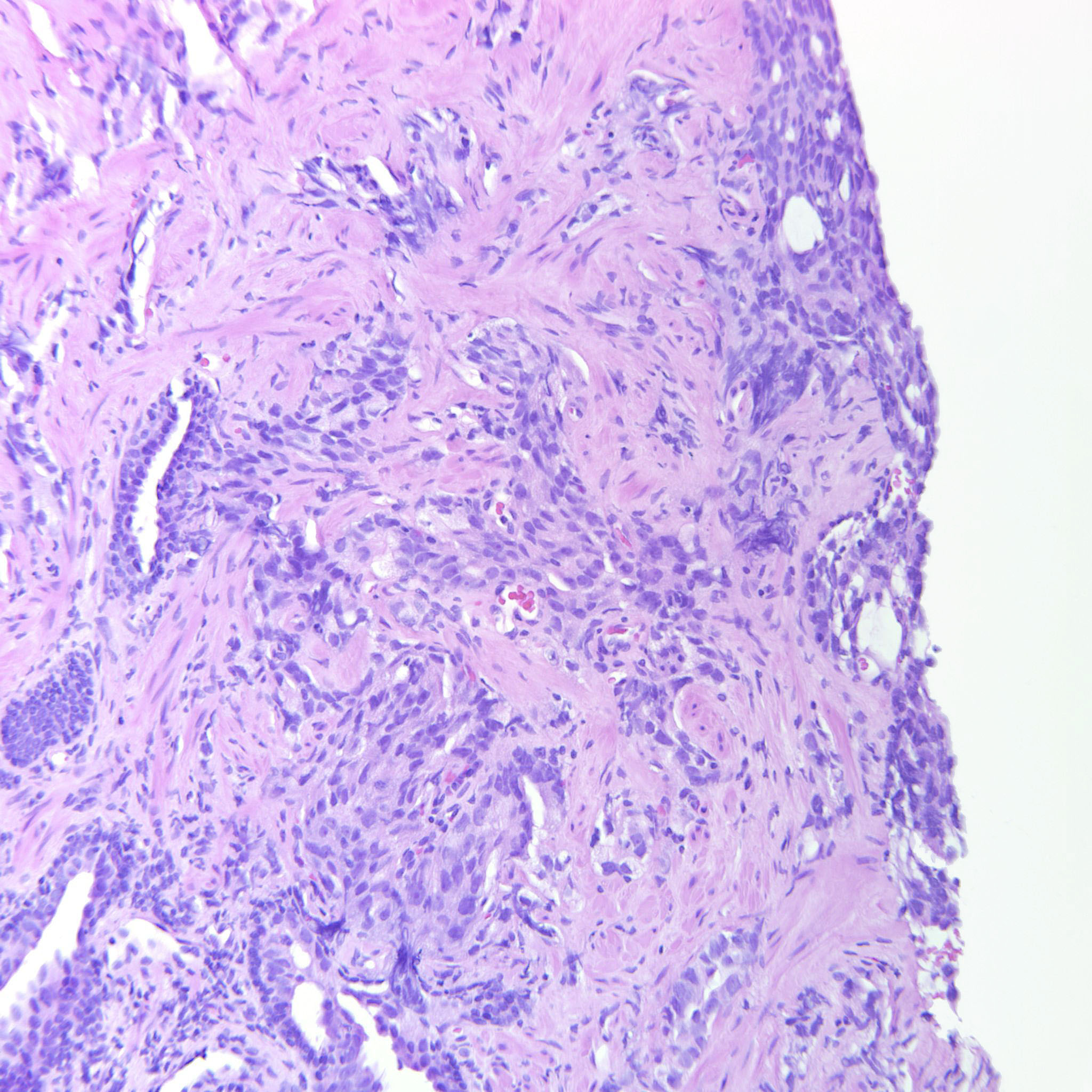Case ID: 793
Publication date: 22 Jan, 2025
Consensus grade: GS 9-10 (ISUP 5)
Show diagnosis by expert panel members| User | Diagnosis | Difficulty | Comment |
|---|---|---|---|
| Pathologist 1 | GS 4+4=8 (ISUP 4) | Borderline higher | |
| Pathologist 2 | GS 4+4=8 (ISUP 4) | Borderline higher | |
| Pathologist 3 | GS 4+4=8 (ISUP 4) | Borderline higher |
Grading is complicated by extensive crush artefact. Cannot exclude gleason pattern component |
| Pathologist 4 | GS 9-10 (ISUP 5) | Typical |
5+4 = 9 |
| Pathologist 5 | GS 9-10 (ISUP 5) | Typical | |
| Pathologist 6 | GS 9-10 (ISUP 5) | Borderline lower | |
| Pathologist 7 | GS 9-10 (ISUP 5) | Typical | |
| Pathologist 8 | GS 9-10 (ISUP 5) | Typical |
cords/single cells are recognizable |
| Pathologist 9 | GS 9-10 (ISUP 5) | Typical |
I would ask for some chromo A staining in daily practice |
| Pathologist 10 | GS 9-10 (ISUP 5) | Borderline higher | |
| Pathologist 11 | GS 9-10 (ISUP 5) | Typical | |
| Pathologist 12 | GS 9-10 (ISUP 5) | Typical | |
| Pathologist 13 | GS 9-10 (ISUP 5) | Typical | |
| Pathologist 14 | GS 9-10 (ISUP 5) | Typical |
Possibly some IDC-P present too. |
| Pathologist 15 | GS 9-10 (ISUP 5) | Borderline lower | |
| Pathologist 16 | GS 9-10 (ISUP 5) | Borderline lower |
crushed |
| Pathologist 17 | GS 9-10 (ISUP 5) | Typical | |
| Pathologist 18 | GS 9-10 (ISUP 5) | Borderline lower | |
| Pathologist 19 | GS 9-10 (ISUP 5) | Typical | |
| Pathologist 20 | GS 9-10 (ISUP 5) | Typical | |
| Pathologist 21 | GS 9-10 (ISUP 5) | Typical | |
| Pathologist 22 | GS 9-10 (ISUP 5) | Borderline lower | |
| Pathologist 23 | GS 9-10 (ISUP 5) | Typical |
Case description (by case creator):
Single cells infiltrating in the stroma. Nuclear features are not part of the Gleason grading but the immature, dark chromatin seen here is typical for GP5 and helps to establish the diagnosis. There is a minority component of poorly formed glandular structures.
